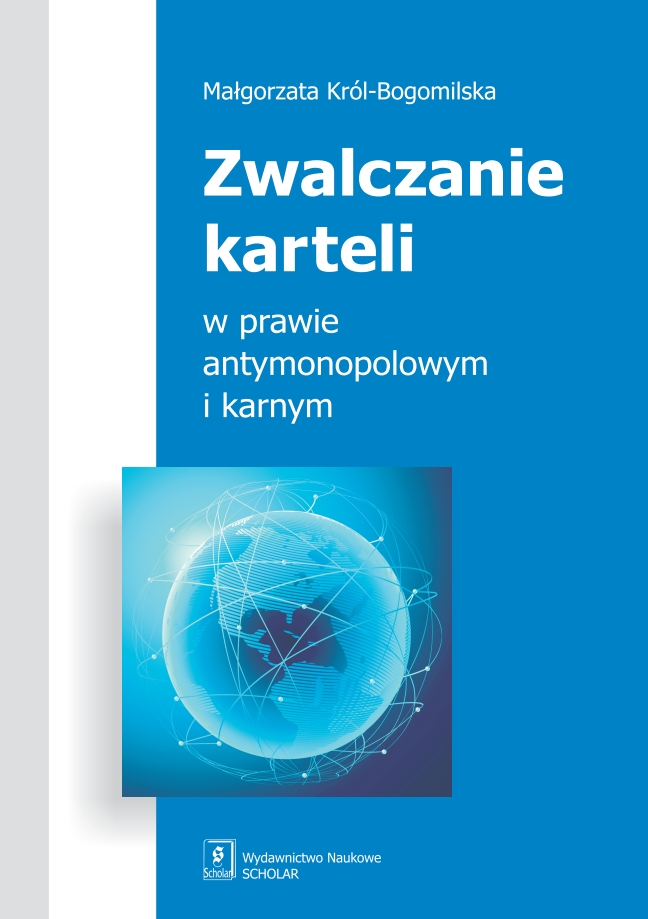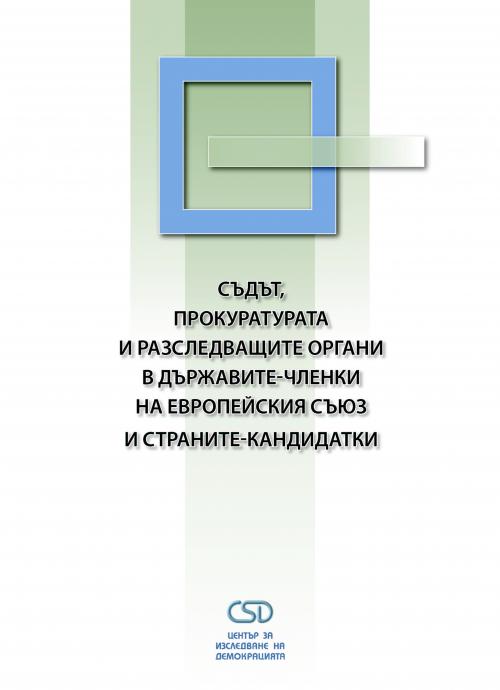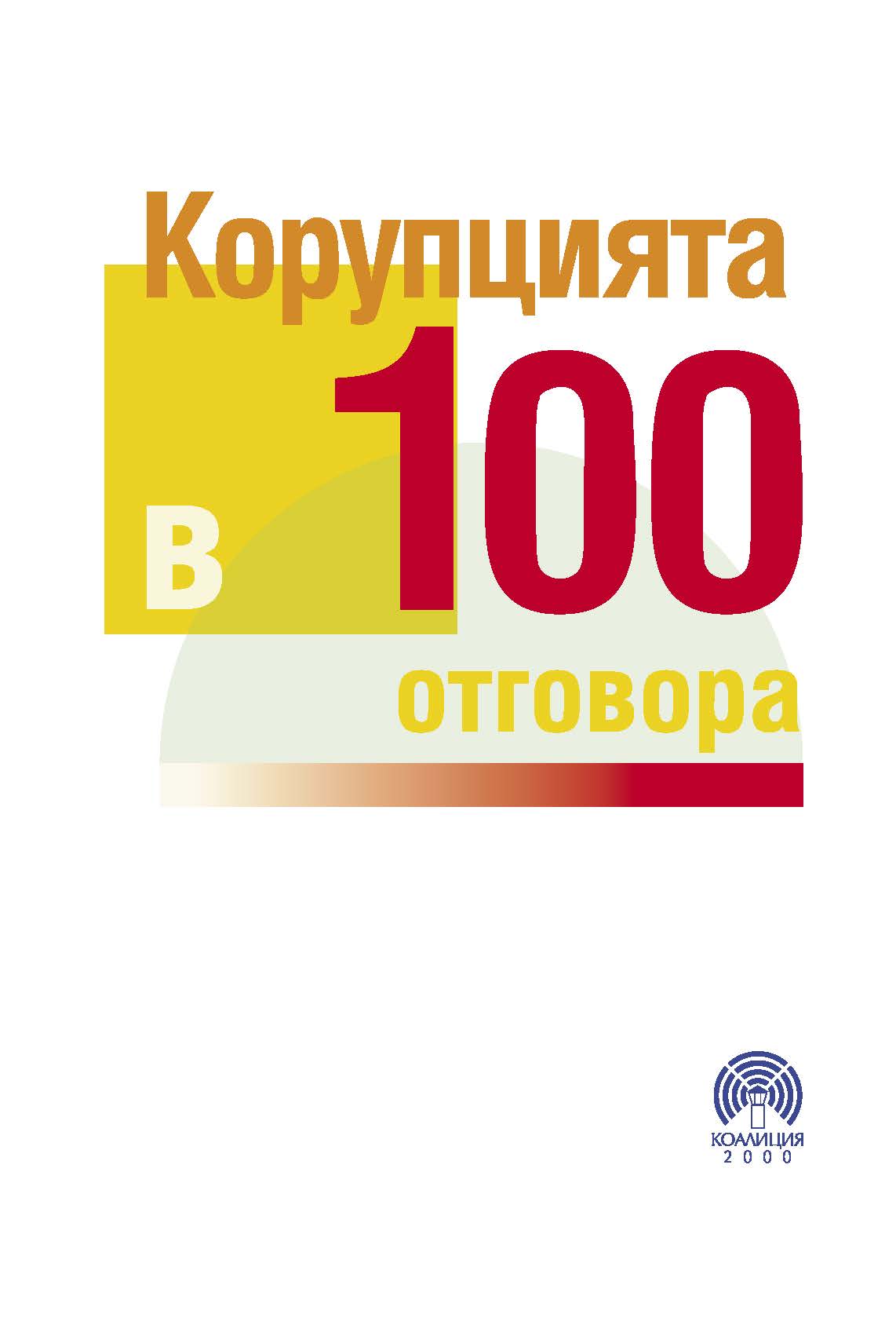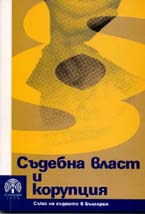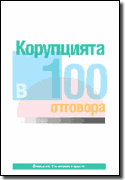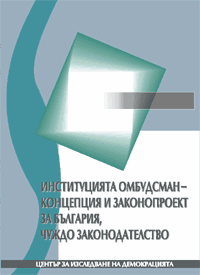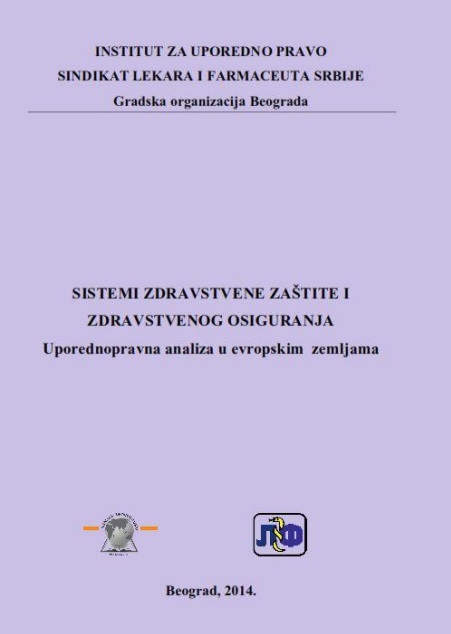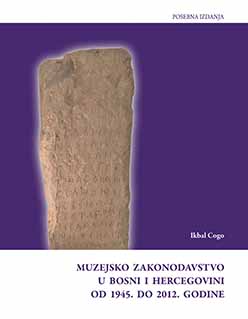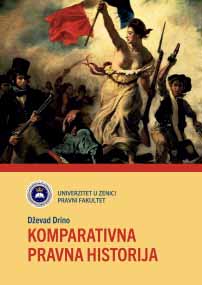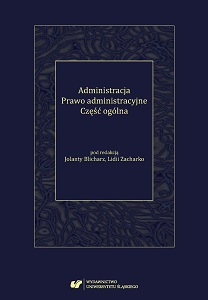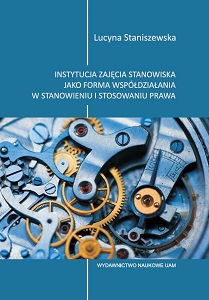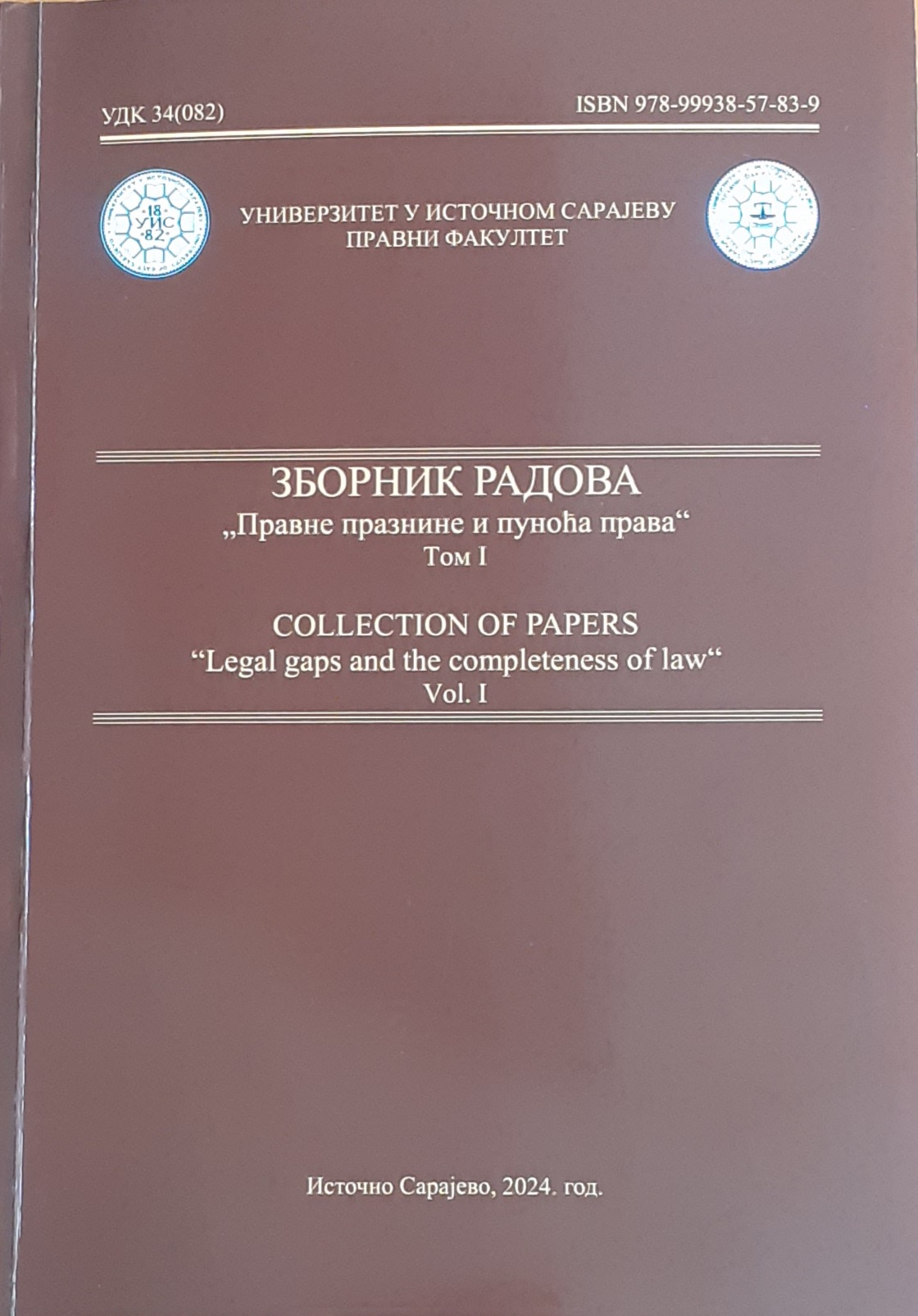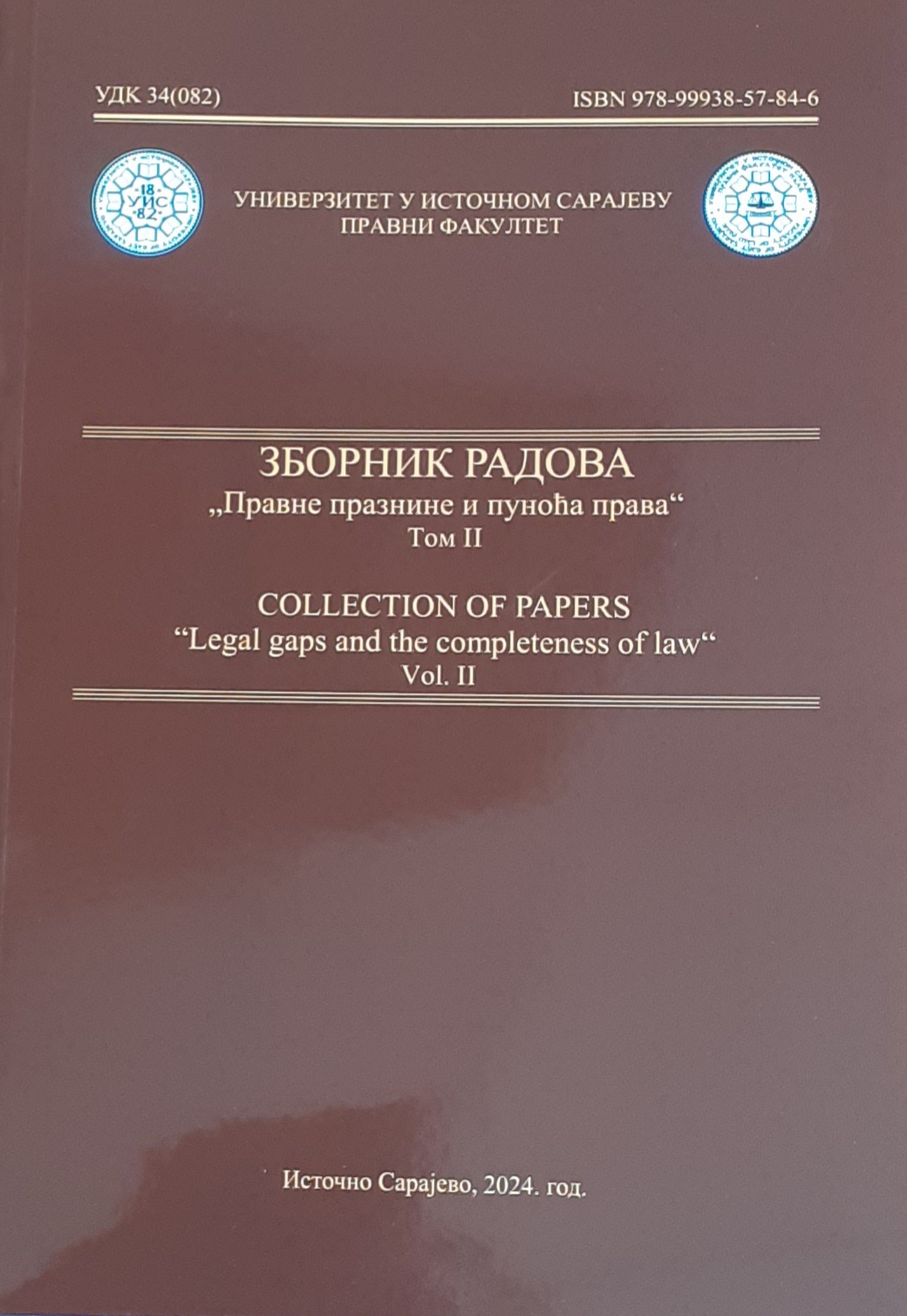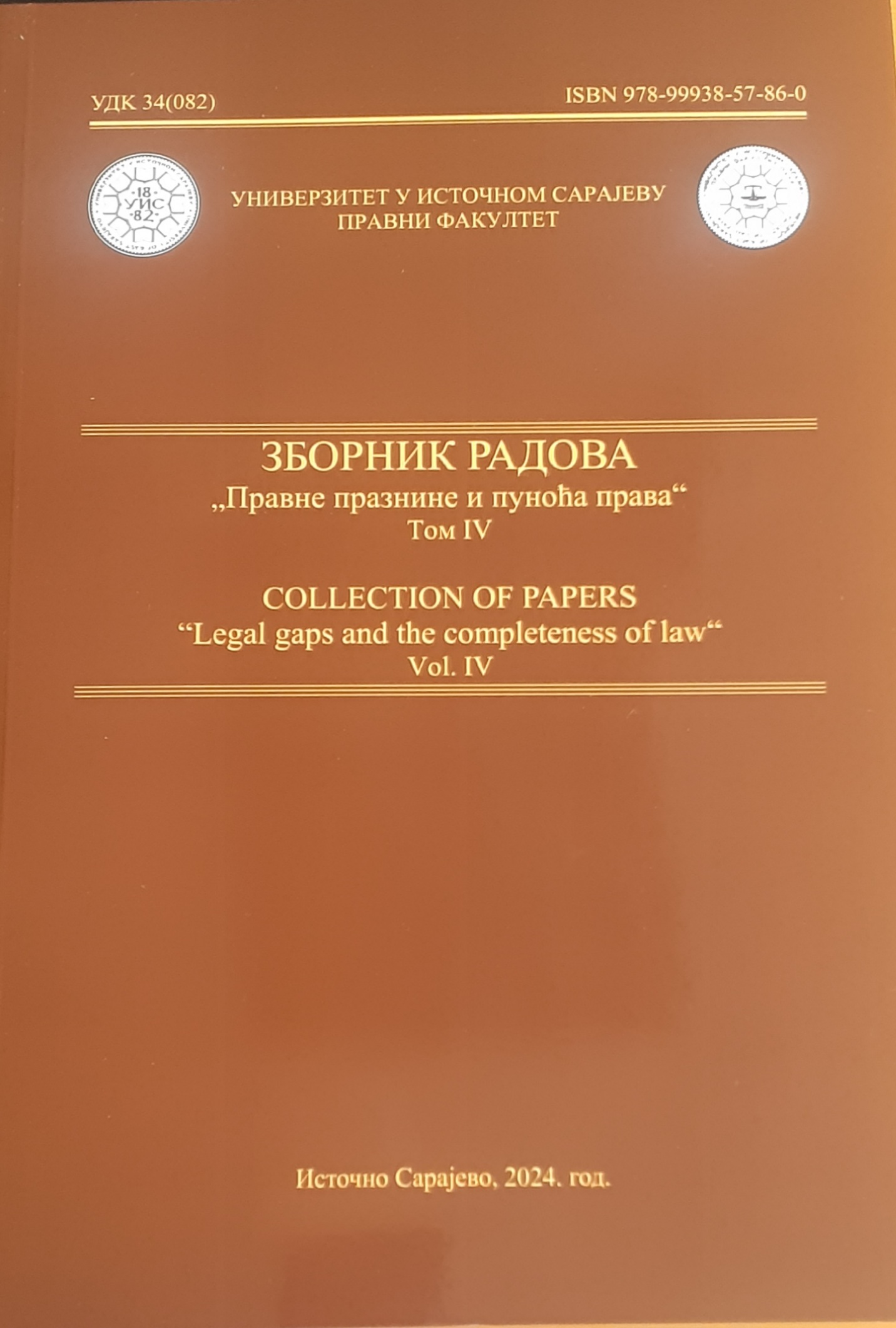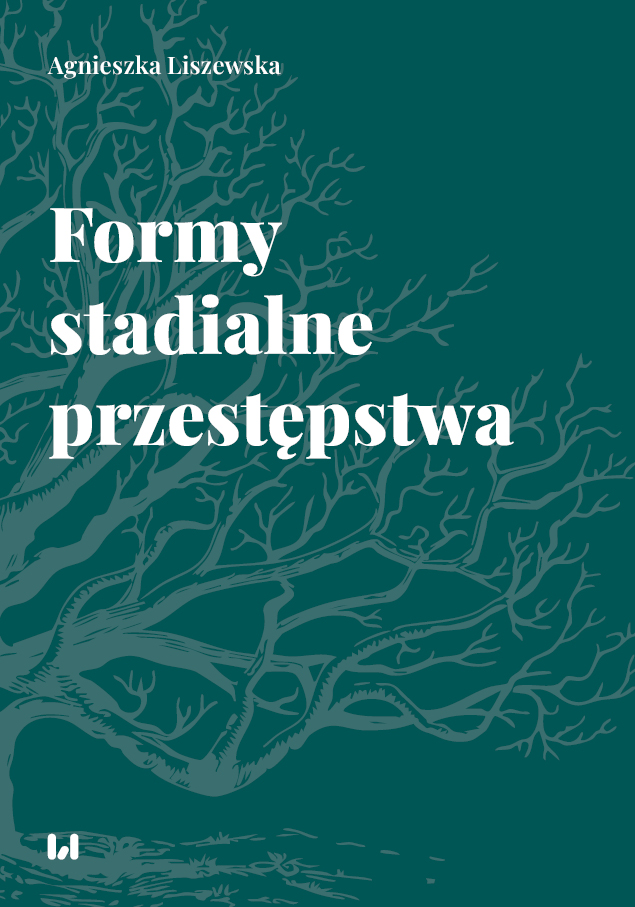Author(s): / Language(s): English,Russian,Serbian
We present to the scientific public the Proceedings “Legal gaps and the completeness of law”, which is the result of the scientific conference held for the twelfth time on the occasion of the Day of the Faculty of Law. At the conference held in October 2023, 206 authors and co-authors, from three continents and 23 countries (Russia, Greece, China, Italy, Hungary, Spain, Cuba, Mexico, Turkey, Bulgaria, Romania, Georgia, Moldova, Cyprus, the Netherlands, Denmark, Sweden, Serbia, North Macedonia, Croatia, Slovenia, Montenegro and Bosnia and Herzegovina with authors from the Republika Srpska and the Federation of Bosnia and Herzegovina), presented 162 reports in Serbian, Russian, English, Italian, Spanish that is, in their native languages. This was the largest conference held in the field of law in Southeast Europe, as well as one of the largest, perhaps the largest one, in Europe in 2023. The co-organizers of the scientific conference were the International Union of Lawyers, the European Public Law Organization, the Institute for Comparative Law, the Institute for Criminological and Sociological Research and the Serbian Association for Criminal Law Theory and Practice. The Proceedings contain over 2,400 pages in five volumes with 111 works by 146 authors and co-authors from 19 countries (Russia, Greece, Italy, Hungary, Spain, Cuba, Mexico, Turkey, Bulgaria, Romania, Georgia, Moldova, Cyprus, Sweden, Serbia, North Macedonia, Croatia, Montenegro and Bosnia and Herzegovina with authors from Republika Srpska and the Federation of BiH). A third of the papers were published in world languages (English, Russian and Italian). The scientific conference held on the occasion of the Day of the Faculty of Law is categorized and classified by the Ministry of Scientific and Technological Development and Higher Education of the Republika Srpska as an international scientific conference of the special importance of the first category and is one of the three best classified and categorized scientific meetings from all scientific areas in the state. The authors dealt with various issues of legal theory and practice, in all legal disciplines. Their goal was to independently and critically analyze legal principles and institutes, to subject legal theory and positive law to criticism, and to make a scientific contribution to the development of legal theory and the improvement of legal systems. The multimethodological approach, which adorns not only the collection as a whole, but also individual papers, made it possible for the scientific analysis to be versatile and rich, and the achieved scientific results significant for the improvement of legal sciences. We believe that students of legal sciences will find enough good scientific analyses, intriguing positions and starting points for new scientific analyses. We also hope that public office holders and legal practitioners will find answers to numerous questions that have arisen in their political and legal practice, and that these answers will become the basis for reflection and adoption of new positive legal solutions. In this way, this collection will fulfill its purpose. It will represent a contribution to the development of legal sciences, especially in difficult social and political circumstances, in which numerous challenges and difficult-to-solve theoretical and practical questions arise before the practitioners of legal sciences.
More...
